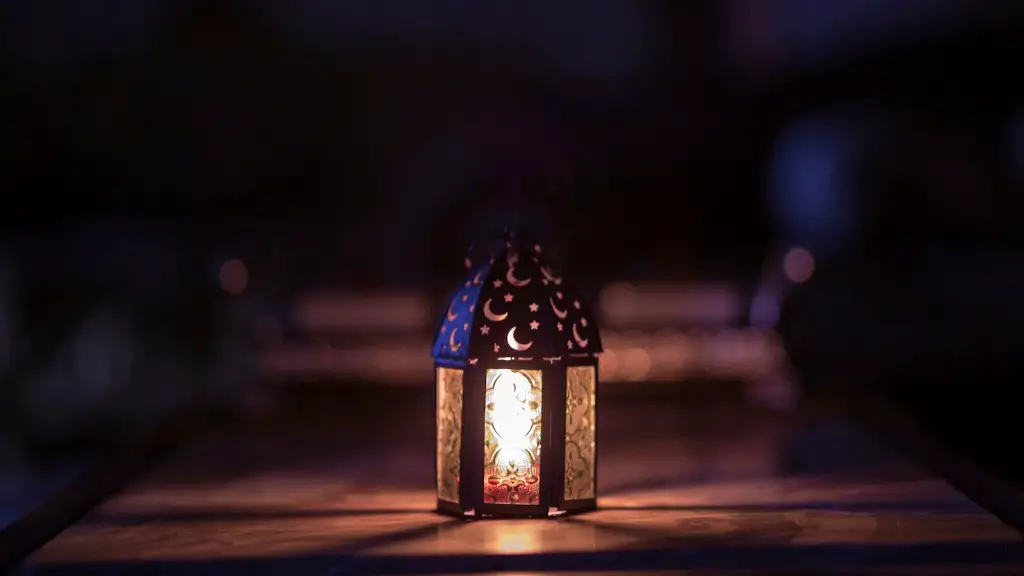Why Circumcision In Judaism?
The Jewish practice of circumcision dates back to the times of Abraham, more than 3,000 years ago. It is one of the most ancient customs shared by members of the Jewish faith. This rite, known as ‘Brit Milah’, is a religious and cultural tradition which is still practiced today.
Circumcision is a mandatory commandment for boys and it is usually performed on the eighth day of life, when the baby is less than a week old. In some instances, due to medical reasons, the ceremony is postponed until the baby is healthy enough.
One of the main reasons why circumcision is so important in Judaism is because it represents the physical and spiritual bond between God and the individual. It is believed that the ceremony announces the birth of a new life, joined to the Creator of the Universe. Moreover, circumcision is connected to the Covenant that God signed with Abraham, which is a sign that the Jewish people are still part of this agreement.
Although circumcision involves a small operation and possible risk, most Jews performBrit Milah willingly, in order to keep their family’s traditions and be a part of their faith. To this day, it is common for Jews to hold celebrations for the birth of their child and for the circumcision ceremony.
The medical benefits of circumcision and the possible risks associated with it have been studied for years. Generally, the results suggest that when done correctly, the benefits may definitely outweigh the risks, and consequently, it is argued that all babies should be circumcised, not just Jewish babies. According to the Medical Council of Israel, the effects of circumcision include a decrease in the risks of some infections, such as yeast infections, sexually transmitted infections and HIV.
Despite these potential benefits, there remains some debate as to whether circumcision is an ethical practice and if it is necessary. Many Jewish people, both religious and cultural, tend to overlook any potential physical, psychological and ethical risks, as they are focused primarily on the spiritual aspects and the preservation of their identity.
Women’s Perspectives
Jewish women, regardless if religious or not, share a similar goal, which is the preservation of tradition. For them, circumcision is seen as a necessary part of their culture. Circumcision is an important part of the creative process and it is an important sign that the mother can take part in the spiritual side of giving birth. This idea of making a covenant with God is seen as essential to the Jewish faith. By performing this act, women are also given the emotional satisfaction of belonging to a unique group and having the ability to pass their traditions to their children.
Jewish women also view circumcision as a symbol of trust and commitment, both between the baby and the world, and between God and the individual. It is understood that the procedure can bring risks to the newborn, and regardless if a woman is religious or not, she will have to rely on faith and trust to make sure that everything will go smoothly.
Most Jewish women today also pay attention to the medical evidence, and are aware of the potential benefits and risks of circumcision. Although the physical and emotional risks need to be taken into consideration, in the eyes of jewish women, the spiritual and cultural aspects are of higher priority.
Male Perspectives
Jewish men have a higher level of exposure to the rite of circumcision, as at the time it takes place they are usually the ones to attend. Many Jewish men consider this ancient religious ritual as a defining element of their masculinity and as a way to join together in the ritual of faith and tradition.
In addition, Jewish men can sometimes feel like they are responsible for their sons’ religious upbringing, and there are expectations on how they should be the one to ensure the spiritual health and wellbeing of their families. This may be further supported by the fact that they perceive circumcision as a necessary and beneficial experience, that their sons should go through.
The potential risks of the procedure may be taken as a challenge, as men feel the responsibility of protecting their families from any harm, providing physical and spiritual security. These duties can weigh more heavily on fathers than on mothers, making the men feel more personally invested in the circumcision ceremony. Therefore, it can be argued that circumcision is a powerful expression of male identity and it is used to assert their role as providers within the family.
Legal Considerations
In recent years, some countries and states are beginning to consider the potential long-term risks of circumcision, both religious and non-religious. Taking into account the recent medical evidence, some governments are debating whether or not the circumcision performed for religious reasons overall harms the well-being of the child.
In 2014, for example, the German Representative for Children’s Rights officially condemned the practice of circumcising boys for religious reasons, as this goes against the child’s right to physical integrity, and it causes ‘irreparable harm’. Even though the majority of the Jewish community rejected this opinion, the state of Bavaria issued a ban on circumcision, which resulted in legal sanctions.
This debate has also reached other states and countries, such as the United States, Switzerland and Sweden. The discussion continues, as some people argue that the physical benefits of circumcision should be taken into consideration. Nevertheless, most people in the Jewish community believe that the traditions and values of their faith should be preserved and defended.
Making the Decision
Deciding to circumcise a newborn baby can be one of the most important decisions a family makes, and it is often a struggle to balance the potential risks, emotional implications and spiritual values. This is especially true for Jews, as their bond with God and traditions are a main reason for immigration and for maintaining their sense of identity throughout time.
Most Jewish parents rely on medical professionals and their religious adviser to assess the issue and make the most informed and responsible choices. The parents are usually aware of the medical considerations, and they tend to prioritize their spiritual obligations more.
Ultimately, each family has to decide for themselves if circumcision is the best option for their child, depending on the physical and spiritual circumstances. As the ritual of circumcision has been a symbol of connection between people and the Creator for thousands of years, it is likely that this practice is here to stay.
Physical Implications
The potential physical risks and implications of circumcision are an important aspect to consider when making the decision to circumcise a newborn. It is essential to perform the procedure in a safe and sterile setting, with qualified medical personnel. The baby should go through a proper medical examination prior to the operation, in order to reduce the risk of any complications.
The procedure is usually done under local anaesthesia, in order to lessen the amount of pain felt by the baby. However, some newborns may experience some discomfort or bleeding, and this should be monitored closely in order to avoid any harm to the child.
Apart from the potential physical risks, circumcision can also result in psychological and emotional effects. Some infant boys may be traumatised by the experience and this can influence their attitude towards circumcision in the long run. The religious meaning of circumcision may be lost if the actual experience is perceived as traumatic.
Medical Evidence
The medical evidence regarding the benefits of circumcision can be conflicting and difficult to interpret. The main studies suggest that the procedure may reduce the risk of some infections, such as those transmitted sexually, and it may have beneficial hygiene effects. Other research, on the other hand, has shown that circumcision may not provide any medical benefit and that it can potentially harm the well-being of a person.
The medical community is divided on the issue, and each family needs to take into consideration the potential physical risks and benefits of circumcision, as well as the spiritual and cultural implications. Some medical professionals suggest that, apart from medical indications, parents should always prioritize the best interest of the child.
Overall, it is believed that circumcision can bring both potential advantages and risks, but the choice is ultimately a personal one, that has to take into consideration all aspects.
Cultural Considerations
Jewish people tend to understand circumcision as a way to keep their culture alive and integrate in their society. It is seen as a mark of distinction and a sign of commitment to their faith.
Circumcision is a visible symbol of Jewish identity, in the same way as wearing traditional clothes or speaking the language. Focusing on this tradition is seen as a way to strengthen the connection between the family and the Jewish community.
Within the past few decades, most Jews have become more aware of the potential physical, psychological and ethical risks of the procedure. Even though development of medical technology made the circumcision procedure safer, many people are still concerned about the welfare of their child. For them, circumcision signifies more than a physical act, and it shows a deep personal commitment not just to their faith, but to their entire culture.
The importance of circumcision within the Jewish community is still strong, and even those who choose not to perform it recognise the rituals that it symbolizes. For some, it is an ongoing source of debate, but it is clear that its relevance and symbolism will continue to be part of their traditions for a long time.



